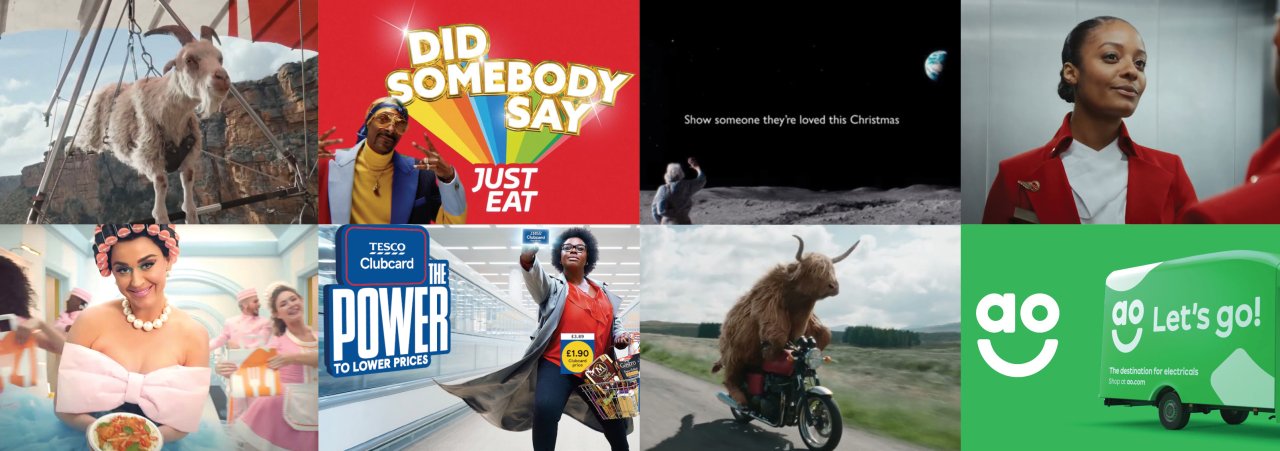
Music can have a huge impact in marketing.
Music plays such a vital part in our lives, it’s hardly surprising that it plays a vital part in marketing too. It builds emotion, drama, comedy and memorability. It can be the trigger for viewers to prick up their ears and take notice. A great jingle can become an ear-worm that (whether you like it or not) can find you subconsciously singing in your head, which acts as a reminder of the brand.
In recent years the amount of famous songs from the 60s, 70s and 80s being used in advertising has risen to a crescendo. Nearly every ad uses a track chosen to appeal to those old enough to remember it the first time around or to a younger audience who love retro. There’s a back catalogue from 50-60 years to plunder for catchy soundtracks. Just check out Virgin Media, McDonalds, Just Eat, John Lewis, Tesco, Cadbury’s, they’re all at it.
There’s no denying that a great track works, even if you tinker with it. In recent years, especially at Christmas, advertisers have pulled on the heart strings with a number of re-recorded versions of hit songs (Lily Allen ‘Somewhere Only We Know’, Ellie Goulding ‘Your Song’, Aurora ‘Half A World Away’ etc) in an attempt to be less predictable. This also works as an ear-worm strategy, as when you first see the ad, you spend the first few seconds trying to recognise the song. It often creates a new hit for the artist and the original composer too, giving them a boost to their bank balance they probably don’t get from Spotify plays. There’s no doubt it works, even if you are sick to death of it by the end of December.
The cost of using these famous tracks and artists can vary wildly. Negotiations with the record label, the publishing company and the artists can be complex. The figures quoted can be quite arbitrary, sometimes shockingly high and sometimes surprisingly low. But, you can be sure that the bigger the brand, the higher the price. For clients with lower budgets and more modest media plans, famous music can still be a possibility. It’s always worth asking, you might be surprised.
Some older music can be out of copyright, so it’s worth checking. The copyright duration of composed music is the author's lifetime + 70 years. Therefore, the musical compositions of old masters like Beethoven, Mozart or even some more recent artists are all in the public domain and you can freely use them. However, you would need to re-record them, which will incur artist and studio fees. Another way of doing it is to use a copyright free library track version and then record the singer on-set, as we did with Alfie Boe for Fisherman’s Friend:
A more cost effective option than using a well-known track, is to brief a composer to create original music and/or a jingle for your campaign. Just Eat’s ads with Snoop Dog and Katy Perry are excellent examples. This has more risk attached to it but can lead to fantastic, ownable results. The key is in the briefing and the creativity of the composer. You may have an idea for the feel you are after a or musical genre, but you should also be open to ideas from an experienced musician.
Another option, for the budget conscious brand, is royalty-free library music. Whilst there are a number of these libraries, and they hold 1,000s of tracks, the search for right track requires careful consideration. There are many tracks that sound very corporate and samey. This could make your marketing seem uninspired and unoriginal. But, by carefully sifting through the choices, the right track can really work.
The future of music in advertising might well include Ai written music and jingles. Pop songs are already being created this way. This can save record companies and brands lots of money. As the process becomes more sophisticated and users become more proficient, it is almost certainly the way things will progress. Which means composers and musicians will have to adapt their ways of working.
But, with decades, even centuries, of great music to choose from there’s never going to be a shortage of choice, so the use of popular hits will continue. But, however the music is chosen or produced, we should never forget that effective marketing has to have a great creative idea at its core.


